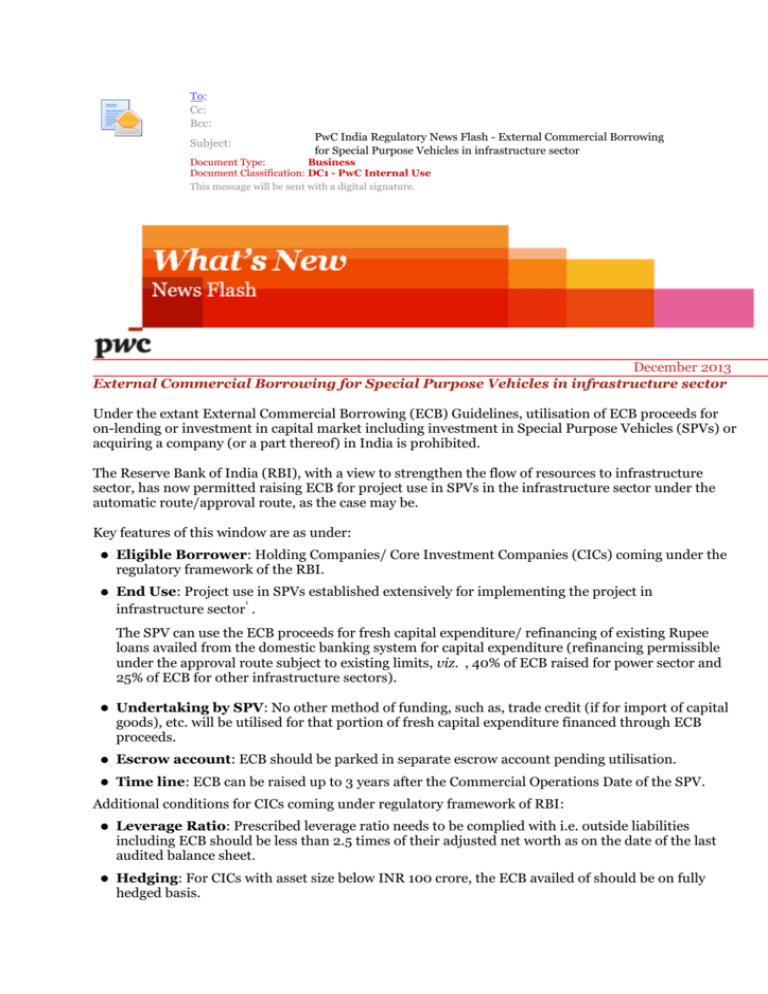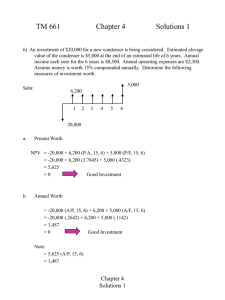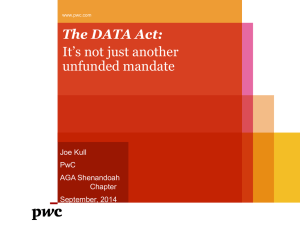
To:
Cc:
Bcc:
Subject:
PwC India Regulatory News Flash - External Commercial Borrowing
for Special Purpose Vehicles in infrastructure sector
Document Type:
Business
Document Classification: DC1 - PwC Internal Use
This message will be sent with a digital signature.
December 2013
External Commercial Borrowing for Special Purpose Vehicles in infrastructure sector
Under the extant External Commercial Borrowing (ECB) Guidelines, utilisation of ECB proceeds for
on-lending or investment in capital market including investment in Special Purpose Vehicles (SPVs) or
acquiring a company (or a part thereof) in India is prohibited.
The Reserve Bank of India (RBI), with a view to strengthen the flow of resources to infrastructure
sector, has now permitted raising ECB for project use in SPVs in the infrastructure sector under the
automatic route/approval route, as the case may be.
Key features of this window are as under:
Eligible Borrower: Holding Companies/ Core Investment Companies (CICs) coming under the
regulatory framework of the RBI.
End Use: Project use in SPVs established extensively for implementing the project in
1
infrastructure sector .
The SPV can use the ECB proceeds for fresh capital expenditure/ refinancing of existing Rupee
loans availed from the domestic banking system for capital expenditure (refinancing permissible
under the approval route subject to existing limits, viz. , 40% of ECB raised for power sector and
25% of ECB for other infrastructure sectors).
Undertaking by SPV: No other method of funding, such as, trade credit (if for import of capital
goods), etc. will be utilised for that portion of fresh capital expenditure financed through ECB
proceeds.
Escrow account: ECB should be parked in separate escrow account pending utilisation.
Time line: ECB can be raised up to 3 years after the Commercial Operations Date of the SPV.
Additional conditions for CICs coming under regulatory framework of RBI:
Leverage Ratio: Prescribed leverage ratio needs to be complied with i.e. outside liabilities
including ECB should be less than 2.5 times of their adjusted net worth as on the date of the last
audited balance sheet.
Hedging: For CICs with asset size below INR 100 crore, the ECB availed of should be on fully
hedged basis.
These amendments would be effective immediately and all other aspects of extant ECB guidelines
remain unchanged.
Source: A.P. (DIR Series) Circular No. 78 dated December 3, 2013
1. ‘Infrastructure sector’ is defined to include energy, communication, transport, water and sanitation, social / commercial infrastructure,
mining, exploration and refining. The detailed definition of ‘infrastructure sector’ can be referred in RBI’s A.P. (DIR Series) Circular No.48
dated 18 September, 2013.
If your interest lies in a specific area or subject, do advise us so we can send you only the relevant alerts.
For any additional information, please reach out to your PwC relationship manager or write in to
pwctrs.knowledgemanagement@in.pwc.com
With Best Regards
PwC TRS Team
About PwC
PwC helps organisations and individuals create the value they’re looking for. We’re a network of firms in 157
countries with more than 184,000 people who are committed to delivering quality in Assurance, Tax and Advisory
services. Tell us what matters to you and find out more by visiting us at www.pwc.com.
In India, PwC has offices in these cities: Ahmedabad, Bangalore, Chennai, Delhi NCR, Hyderabad, Kolkata,
Mumbai and Pune. For more information about PwC India's service offerings, visit www.pwc.com/in
PwC refers to the PwC network and / or one or more of its member firms, each of which is a separate legal entity.
Please see www.pwc.com/structure for further details.
Follow us on Facebook, Linkedin, Twitter and YouTube.
©2013 PricewaterhouseCoopers. All rights reserved. "PwC", a registered trademark, refers to PricewaterhouseCoopers Private Limited (a
limited company in India) or, as the context requires, other member firms of PricewaterhouseCoopers International Limited, each of which is a
separate and independent legal entity.
Transfer Pricing
Regulatory
M&A
Our Tax & Regulatory Services Direct Tax Indirect Tax
Tax Controversy and Dispute Resolution
Financial Services
NOTE : If you wish to unsubscribe receiving communications, please send in a blank email as reply to this mail with subject line "Unsubscribe".









